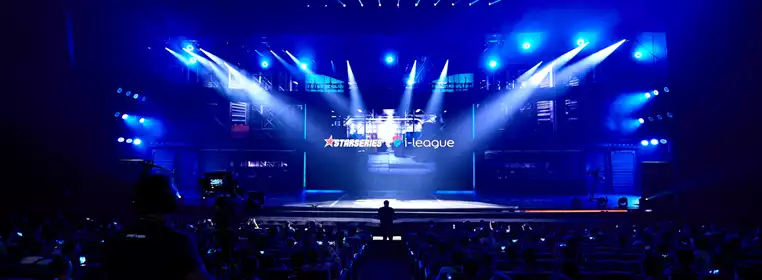StarLadder announces return to CS as event calendar fills up for 2025

Event organiser StarLadder has announced its return to the Counter-Strike scene. The company revealed plans for two seasons of its circuits respectively for 2025 and 2026, filling out the esports competitive calendar.
StarLadder returns
After a four-year absence from organising Counter-Strike events, the Ukrainian esports production company has announced its return to the scene. In 2019, it hosted the Berlin Major and finished out its Starseries season 8 in Belek, Turkey.
It then moved on to other titles such as Dota2 and PUBG, only hosting smaller tournaments in Global Offensive for the time being. For 2025, StarLadder is back with its StarSeries, which it started hosting in 2012. Through its various versions of the game, StarLadder has progressed with the Counter-Strike community.
With Counter-Strike 2 in full force and tournament activity picking up significantly across the esport from 2025 onward, StarLadder looks to slot into the game's schedule with two seasons for both years. The announced event dates are as follows:
Season 19: May 26 - June 1, 2025
Season 20: September 12 - September 21, 2025
Season 21: May 25 - May 31, 2026
Season 22: September 11 - September 20, 2026
Counter-Strike 2 opens up
With its first Major under its belt, the conclusion of PGL Copenhagen, Counter-Strike 2 is looking at a well-saturated future. The esports calendar is filled to the brim with events hosted by various organisers across the industry.
With the currently announced events in 2025, only four-week Winter and Summer breaks (with potential participation of CS for Esports World Cup) are interrupting the flow of professional Counter-Strike. It stands to reason that the recommitment of both PGL and StarLadder comes at the hands of the CS developer.
Valve imposed rule changes, prohibiting event organisers from entering "unique business relationships" with teams, effectively shutting down both BLAST and ESL's partnership programs and opening up the market for other event organisers to compete.
Moreover, the lack of partnership agreements is likely to allow teams to choose participation in the many events across the competitive calendar more selectively. In the past, the number of mandatory matches had caused a scene-wide discourse on player burnout due to the various circuits forcing participation from its partnered competitors.
